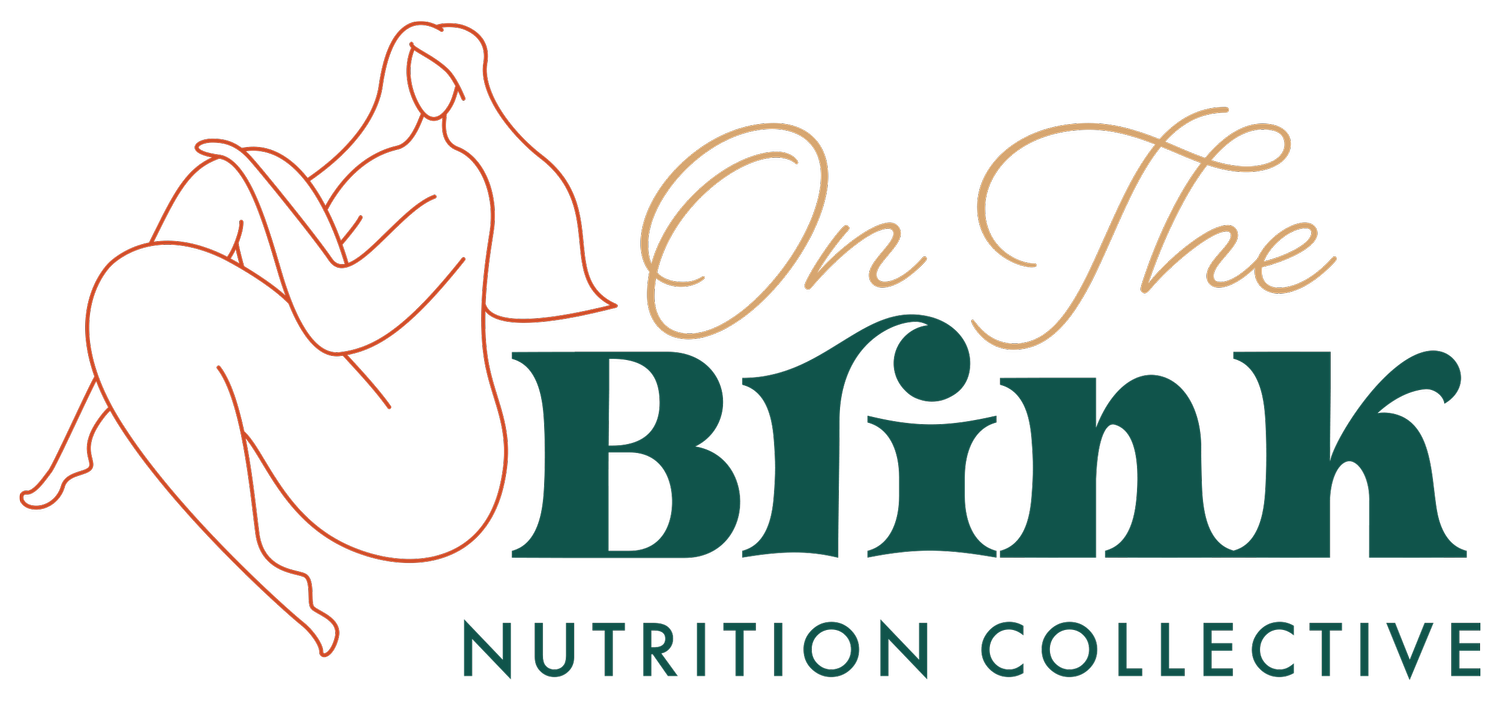Am I Eating Too Fast?
A question I often get from clients is, “How can I learn to eat slower?”
Let’s step through this problem of eating too fast, shall we?
Start by asking more questions:
How would you know if you were eating too fast? Someone’s comments, abdominal discomfort?
Too fast for what or whom? What are family, friends, culture’s narratives on fast eaters?
Is it ever okay to eat at a fast pace?
What would it take for you to change the pace at which you eat? What fears and worries arise?
Tell me about the person who eats fast?
How much time do you have to eat? If you’ve only got 10 minutes, eating at a fast pace makes sense.
What would it mean for you to slow down your eating pace? Perhaps missing out on enough food because there’s only so much to go around.
What were eating environments like for you growing up?
What eating style (including pace) was modeled for you from adult caregivers in your life?
Asking questions can help you examine and push-back on the idea that there is a too fast and a too slow pace of eating.
Checking in with body-based sensations (the felt sense) at the idea of making a change is an embodied approach of exploration. Sometimes eating behaviors are so deeply automated that a person might never get from wanting-to-change to trying-to-change. This is why understanding safety and threat through the nervous system can be so deeply supportive. Helping people get the understanding can help reduce how disorganized they feel. So, even outside of the session, they are a lot better able to recognize what is going on, to name it, and to do something about it.
Examining the eating environment and other external variables invites self-compassion. Telling the bigger story beyond “I eat too fast” lessens needless self-blame and surfaces how social structures might be impinging on them. It invites a collective awareness of what we’re conditioned to frame as a personal problem.
I hear you when you say you want to eat slower.
But I wonder if what you are really after is to not feel the impulse (or necessity) to rush through a meal. Here is an invitation to refocus the attention away from the behavior and take care of the impulse/need.
There is something powerful about helping people re-frame something they have only been able to think of as a problem.
Let’s come at this with a new energy.
What if eating at a fast pace isn’t the problem. What if the problem is not enough time for a meal, not enough food on the plate, not enough support for the stress and chaos of life? When we can accurately name and tend to the actual problem, the rate at which you eat matters very little (and may just take care of itself).
Below are two suggestions for how to care for your eating pace in a new way.
Experiment 1:
Get to know your autonomic states.
Imagine a hungry animal after a hunt, they are not taking their time. They are tearing into their food to get as much as possible because who knows when there will be good food again?! In this blog post is a worksheet that helps you map your nervous system (we can do this in session as well) and make meaning of your eating behaviors. If you are sympathetically-dominant, it makes sense that you would eat quickly (fight energy).
Exercise 2:
Embodied Eating Practice.
Your body is a source of wisdom and support. Shift your eating experience from your mind to your body. When you have time at a meal or snack, sit or stand while bringing awareness to your feet on the floor, your seat against the seat on which you sit, and your back (against the seat or wall). This is what support feels like. Turn our attention to the food before you. With the first bite, can you feel the tongue that tastes the food? Can you move beyond mind-knowing and include mouth-knowing, throat-knowing, gut-knowing? Imagine the nourishment going to your brain, heart, the body part that needs the most nourishment now? Can you notice the food or beverage move from your mouth further into your body? How far in can you notice the food after it is swallowed? You may be able to sense very cold or very hot food items further into your body.
The work we do together isn’t about swapping a problematic behavior for a right behavior. The real healing happens when we can find a different (and more comprehensive) way of viewing the behavior that has been identified as the problem. Reach out for assistance. I’m here to help!
